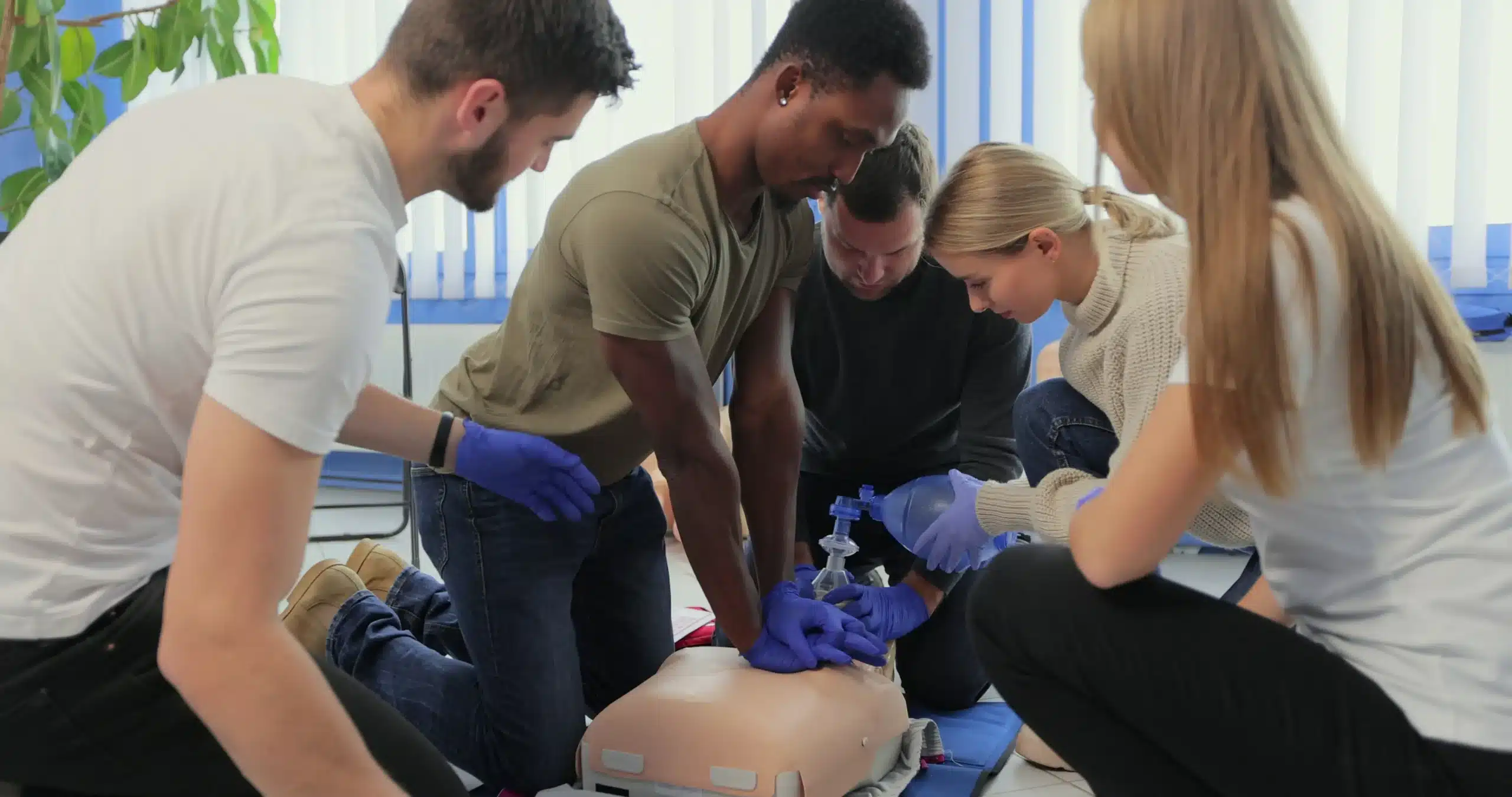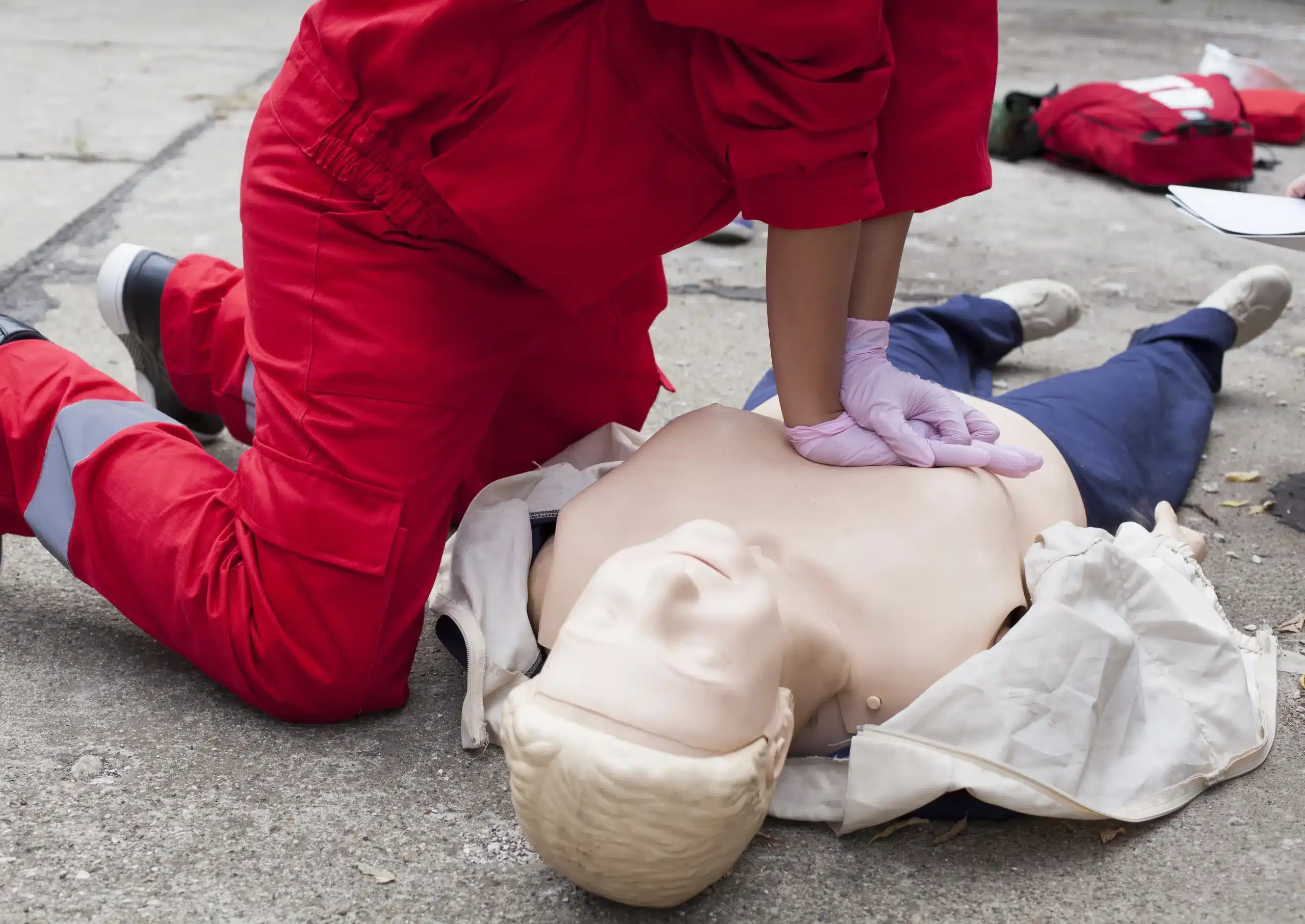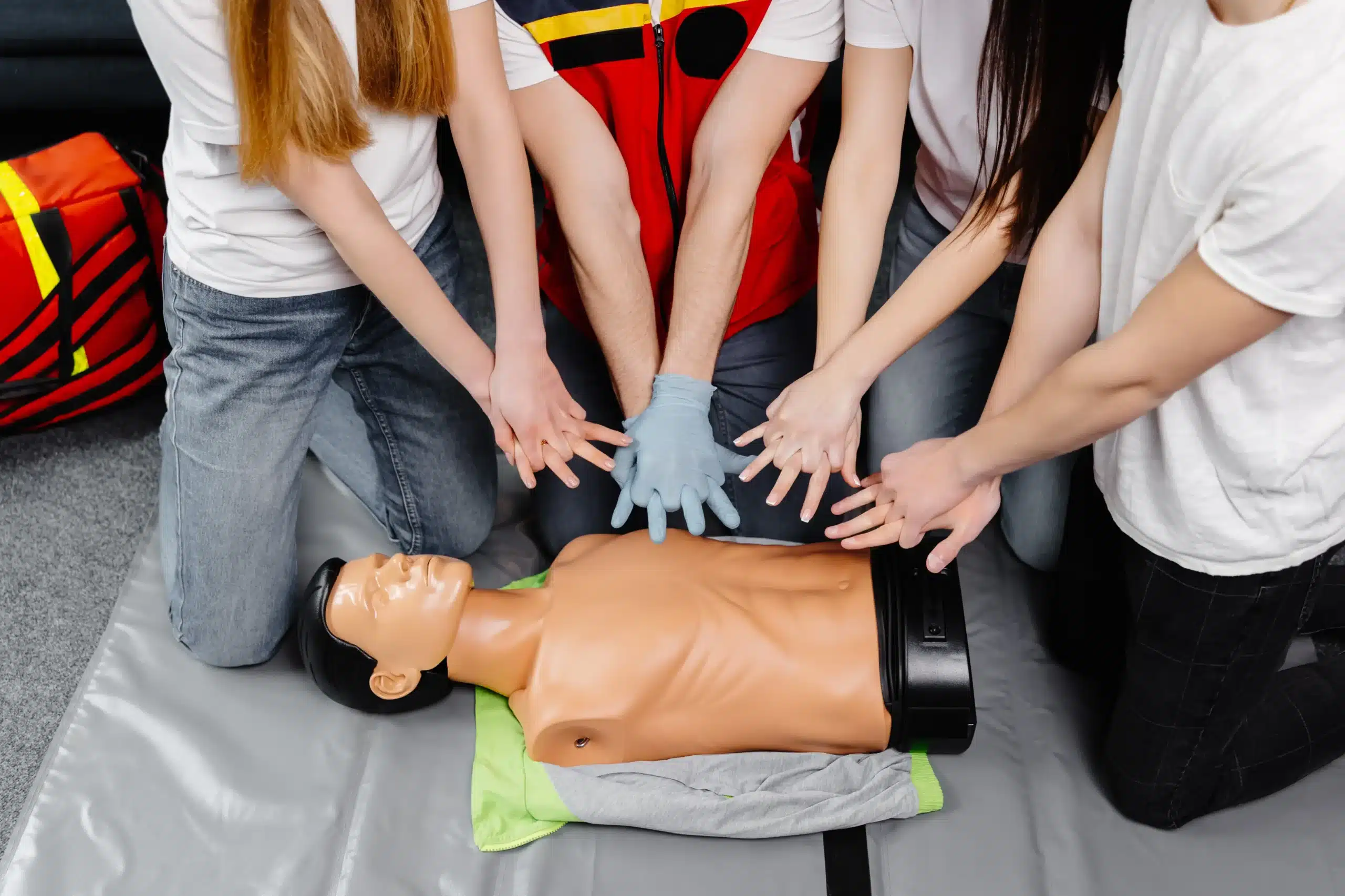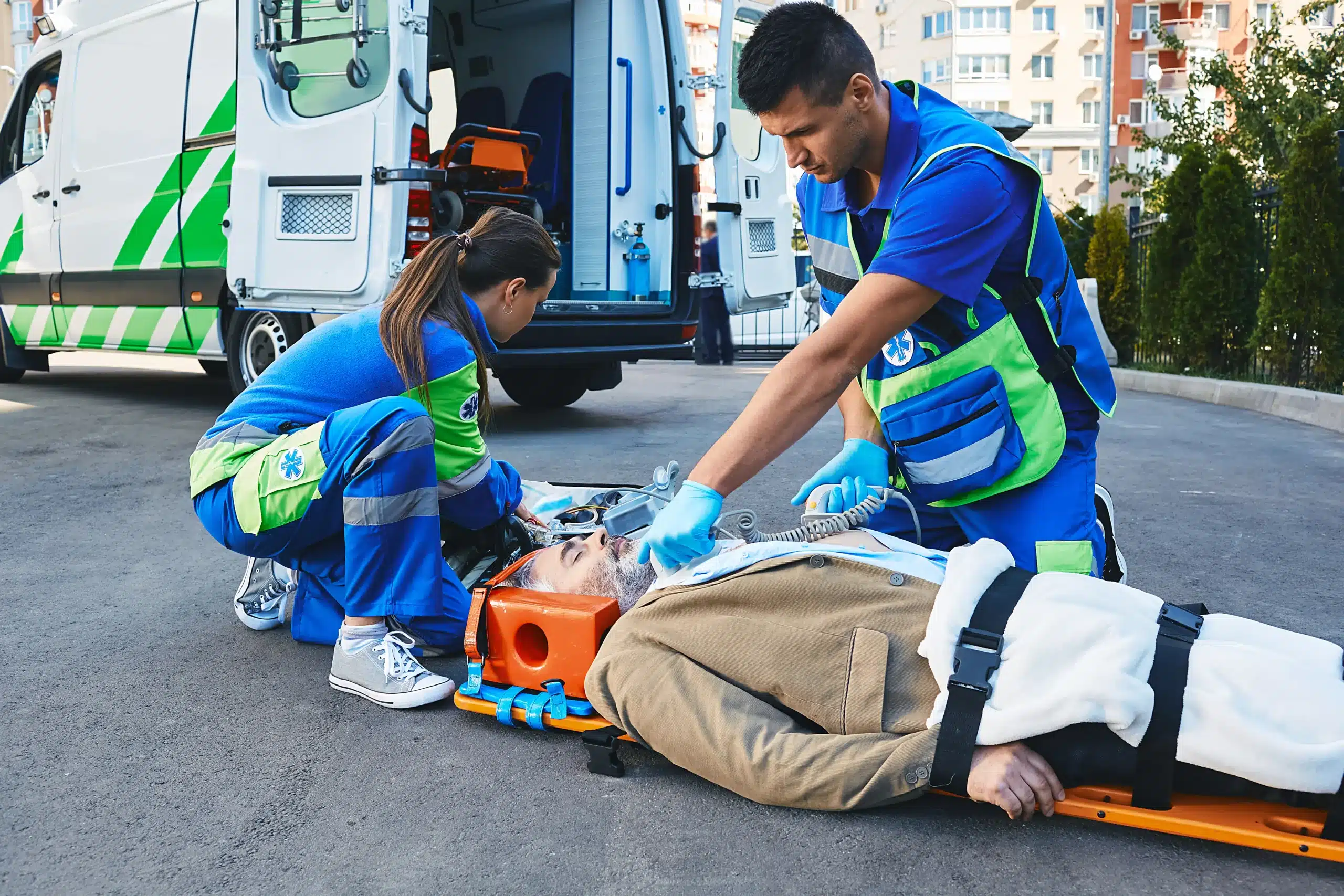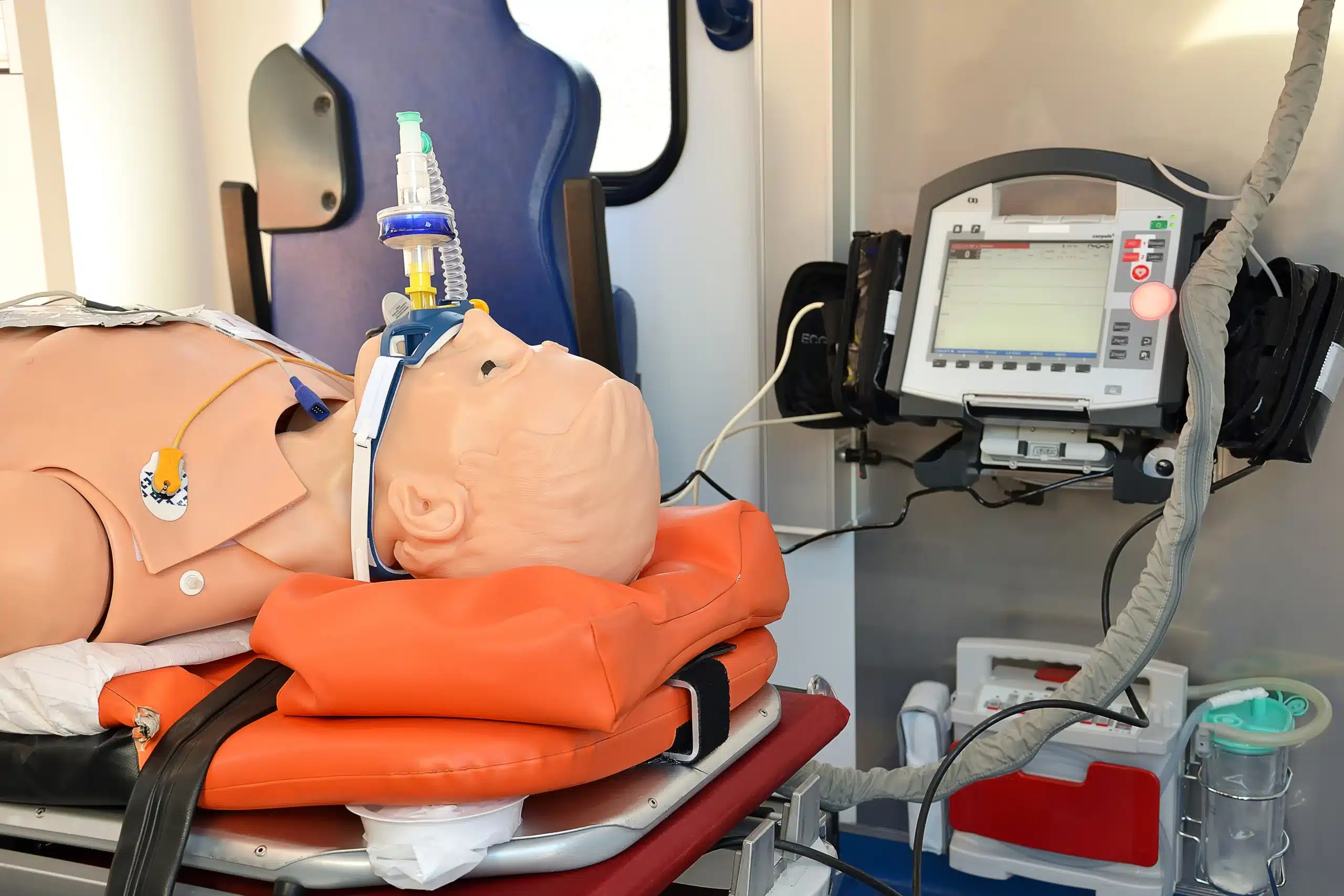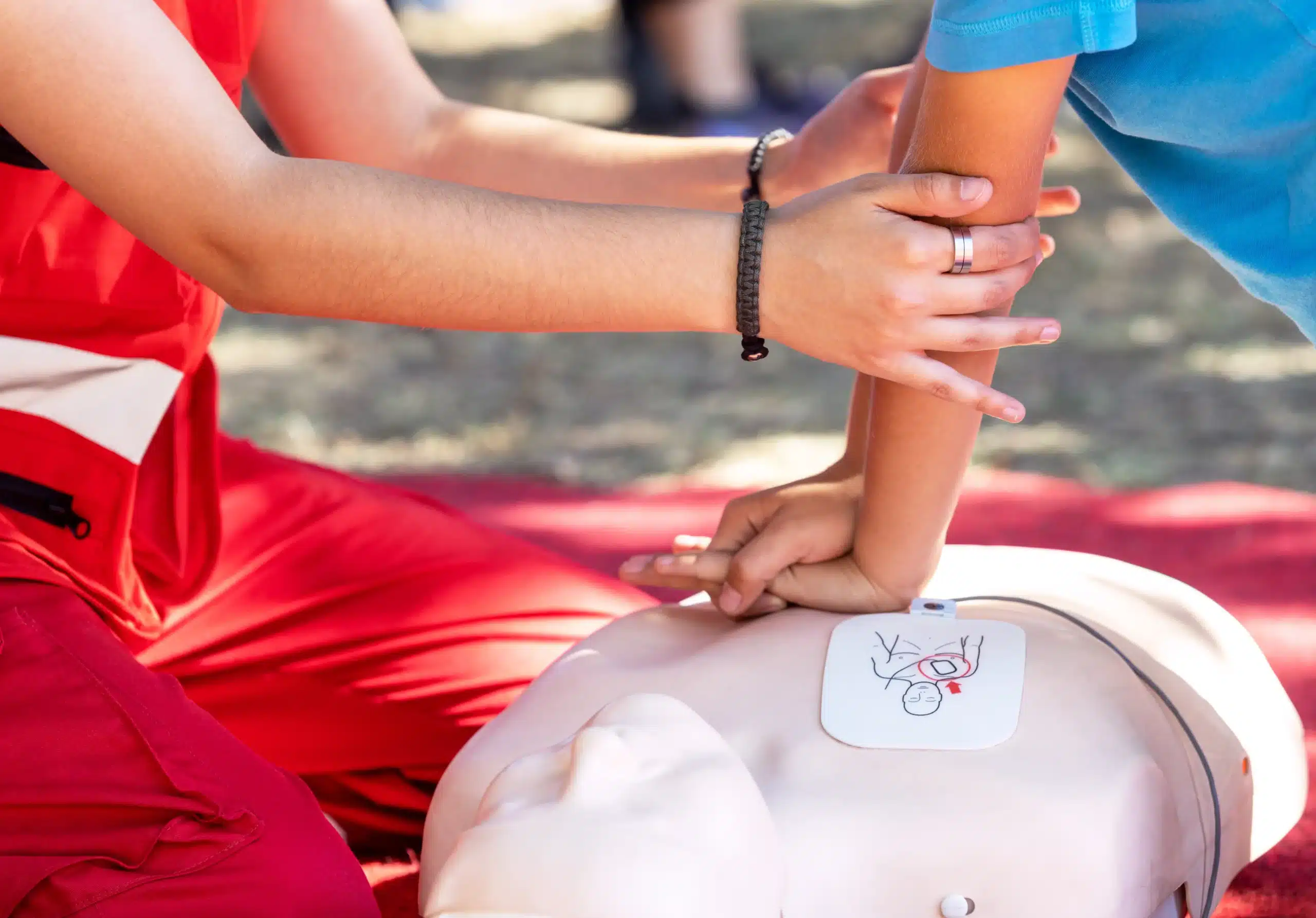As a healthcare professional, your BLS certification is your lifeline in emergencies. It signifies your readiness to provide critical care, and keeping it current is essential for your career and, more importantly, for the well-being of your patients. But finding the right “BLS renewal near me” can feel overwhelming. This guide simplifies the process, breaking down everything from course formats and costs to provider accreditation and what to expect during training. We’ll also explore why BLS renewal is so vital for healthcare professionals and offer tips for effective learning and skill retention. Let’s make sure your skills are sharp and your certification is up-to-date.
Key Takeaways
- Stay current with BLS: Renewing your BLS certification keeps your lifesaving skills sharp and ensures you’re up-to-date on the latest guidelines. Find a course format—online, in-person, or blended—that works for you.
- Choose a reputable provider: Look for AHA accreditation, experienced instructors, and positive reviews when selecting a BLS renewal course. Consider factors like cost, location, and additional resources.
- Prioritize your renewal: Don’t wait until the last minute. Plan ahead and register for your BLS renewal course to avoid a lapse in your certification and maintain your confidence in providing care.
What is BLS Renewal?
BLS (Basic Life Support) renewal keeps your life-saving skills sharp. It’s how you stay up-to-date on the latest guidelines and best practices for emergency care. BLS certification is essential for many healthcare professionals, as well as professionals like lifeguards and fitness instructors. This certification is valid for two years. To continue providing care, you’ll need to renew your BLS certification after that.
Renewal usually involves a course and an exam. You can often find these courses online and in person. It’s important to remember there’s no grace period after your certification expires. Renew before the expiration date to avoid a lapse in your credentials. Some organizations might require you to retake the entire BLS Provider course if your certification lapses, so it’s best to stay on top of renewal. You’ll find plenty of courses with flexible scheduling. Check out our Northern CA CPR Directory to find a course near you.
Find the Best BLS Renewal Providers Near You
Finding the right BLS renewal provider is key to a smooth recertification process. Here’s what to look for and some reputable providers to consider.
Tracy CPR Classes: Your Local AHA Training Center
Tracy CPR Classes is an AHA Training Center offering various courses, including BLS renewal, right here in Tracy, CA. We serve Stockton, Lodi, and the surrounding areas, providing convenient, high-quality training with certification cards valid for two years. Our focus is on delivering excellent customer service and equipping you with the confidence and skills to provide effective care. Check out our BLS course page for more details.
Other Top Providers for BLS Renewal
Beyond your local options, several well-known organizations offer BLS renewal courses:
American Red Cross
The American Red Cross is a trusted name in emergency training. They offer BLS renewal courses designed to give responders a strong foundation in lifesaving techniques. Their focus is on preparing you to act quickly and confidently in critical moments.
National Safety Council
The National Safety Council provides a variety of CPR and first aid training, including BLS renewal. Their courses cater to both healthcare professionals and the general public, ensuring everyone can access quality training.
ProTrainings
ProTrainings offers online and in-person BLS renewal courses that align with AHA guidelines. This ensures you receive up-to-date training and maintain a current certification.
American Safety & Health Institute (ASHI)
ASHI provides BLS renewal courses emphasizing practical skills and the knowledge needed for effective emergency response. Their training focuses on real-world application to prepare you for various scenarios.
Evaluate Provider Reputation and Accreditation
When selecting a provider, look for accreditation from recognized organizations like the American Heart Association or the Red Cross. This ensures the training meets industry standards and provides you with a valid and respected certification. Reading online reviews and checking a provider’s history can also give you a sense of their reputation and the quality of instruction. A solid reputation often reflects a commitment to providing valuable and effective training.
Compare BLS Renewal Course Formats and Costs
Choosing the right BLS renewal course depends on your learning style, schedule, and budget. Let’s break down the most common formats and their associated costs.
In-Person Training: Hands-On Experience
In-person BLS renewal courses offer the most hands-on learning. You’ll work directly with an instructor and other students, practicing techniques on mannequins and getting immediate feedback. This format is ideal for those who learn best through tactile, kinesthetic experiences. Tracy CPR Classes offers BLS renewal courses in a blended learning format, combining online coursework with an in-person skills session.
Online Courses: Flexibility and Convenience
Online BLS renewal courses offer maximum flexibility. You can complete the coursework at your own pace, anytime, anywhere. This blended learning format typically involves online modules, videos, and quizzes, followed by an in-person skills assessment. This makes online renewal a convenient option for busy professionals or those with demanding schedules. Explore some online BLS class options to see if this format is a good fit.
Hybrid Options: The Best of Both Worlds
Many providers now offer hybrid or blended learning options that combine online and in-person training. You’ll complete the cognitive portion of the course online and then attend a shorter, in-person session to demonstrate your skills and receive your certification. This approach offers both convenience and the essential hands-on practice recommended by organizations like the Red Cross.
Average Pricing and Available Discounts
BLS renewal course costs vary depending on the provider, format, and location. In-person courses typically range from $75 to $150, while online or hybrid options may be slightly less expensive. Tracy CPR Classes offers BLS renewal (including online coursework, the skills test, and your certification card) for $120. Look for discounts or promotions. Some providers, like American BLS, offer promo codes for their online courses. Remember to factor in any additional costs, such as study materials or travel, when comparing prices.
Enroll in Your BLS Renewal Course
Getting recertified in BLS is straightforward. This section breaks down the process so you know what to expect.
Step-by-Step Enrollment Process
First, find an accredited provider offering BLS renewal courses. A quick search for “American Red Cross or your local AHA Training Center. Once you’ve chosen a provider, select a course date and time that works for you. Most providers offer online registration, making signing up easy. You’ll typically create an account, provide your information, and pay for the course online. Some providers may require paperwork before your class.
Course Duration and Time Commitment
BLS renewal courses refresh your essential skills efficiently. Expect the course to take a few hours, usually finishing the same day. Your BLS certification is valid for two years, and you can renew up to 30 days after it expires. Don’t wait—plan and register for your BLS renewal in advance.
What to Expect During Training
BLS renewal courses blend classroom learning with hands-on skill practice. You’ll review key concepts like adult, child, and infant CPR, AED use, and relieving choking. The course will likely include videos, quizzes, and demonstrations, followed by practice. This hands-on portion builds confidence and prepares you for real-life emergencies. You’ll receive your certification card the same day.
BLS vs. Other CPR Certifications: Key Differences
BLS (Basic Life Support) is a more advanced course designed primarily for healthcare professionals like doctors, nurses, and paramedics. It covers everything in standard CPR training, including chest compressions and rescue breaths, but also includes critical skills for managing breathing obstructions and other respiratory emergencies. Think of BLS as CPR amplified—it equips you with a broader skillset to handle more complex situations. In contrast, a standard CPR course teaches the fundamentals of life-saving techniques, making it perfect for anyone who wants to be prepared to help in a cardiac emergency, such as teachers, coaches, or concerned family members. While both certifications are valuable, BLS certification is typically required for those working in healthcare, while CPR certification often suffices for the general public and those in non-medical professions. The Red Cross offers more information on the distinctions between BLS and CPR certification.
Why BLS Renewal Matters for Healthcare Professionals
For healthcare professionals, maintaining a current BLS certification is non-negotiable. It’s not just about checking a box; it’s about ensuring you can deliver safe and effective patient care. Hospitals and other healthcare facilities require valid BLS certification, and it’s often a prerequisite for employment. Your BLS certification is valid for two years, and there’s no grace period after it expires. Renewal involves completing a refresher course and passing an exam, which keeps your skills sharp and ensures you’re up-to-date on the latest protocols and techniques. This BLS renewal process isn’t just about meeting workplace requirements; it’s about being confident and prepared to handle any emergency. Staying current with your BLS training ultimately translates to better patient outcomes.
Make the Most of Your BLS Renewal
Getting your BLS certification renewed isn’t just a box to check—it’s about maintaining crucial lifesaving skills. Here’s how to approach your BLS renewal to get the most out of it:
Tips for Effective Learning and Skill Retention
Think about how you learn best. Blended learning for CPR renewal combines online coursework with in-person skills assessments. This lets you study at your own pace and then practice in person. In-person CPR training offers direct feedback from certified instructors, which is key for mastering these skills. Whether you’re a healthcare provider or a parent, BLS training equips you to handle emergencies, so make the most of your learning experience. For more tips, take a look at our BLS renewal guide.
Maintain Your Certification
Staying current with your BLS certification is essential. You need to renew it every two years, and you can renew up to 30 days after it expires. The renewal process usually involves choosing a course (online or in-person), completing the coursework, passing an exam, and getting a new certification card. This guide on BLS renewal offers a helpful overview. You have some flexibility—a renewal class can be taken up to 60 days after expiration—but it’s best to renew on time.
Choose the Right BLS Renewal Course
So, you’re ready to renew your BLS certification—fantastic! Choosing the right renewal course is key to maintaining your skills and confidence. This section breaks down the factors to consider so you can make the best decision for your needs.
Factors to Consider
First, confirm the program’s accreditation. While many institutions offer BLS renewal, make sure they are accredited by the American Heart Association. This ensures your certification meets the highest standards. Tracy CPR Classes offers AHA-certified courses, giving you peace of mind that your certification will be valid and recognized.
Next, think about the course format. Online BLS training offers flexibility, allowing you to learn at your own pace and on your schedule. The blended learning format combines online coursework with an in-person skills assessment. If you prefer a more traditional approach, in-person training provides hands-on practice and direct feedback from a certified instructor. Consider your learning style and schedule when making your choice. We offer both options at Tracy CPR Classes, allowing you to choose the format that works best for you.
Cost is another important factor. BLS renewal at Tracy CPR Classes is $120, which includes the online portion, the skills test, and your certification card. Compare pricing across different providers to find the best value. Don’t forget to ask about potential group discounts or special offers. We often have promotions running, so check our website for the latest deals.
Finally, consider the quality of the instructors. Experienced, certified instructors can make a significant difference in your learning experience. Look for providers who prioritize instructor qualifications and ongoing training. At Tracy CPR Classes, our instructors are highly experienced and committed to providing high-quality instruction.
Make an Informed Decision
Once you’ve identified a few potential providers, take some time to gather more information. Reading [online reviews](https://www.google.com/search?q=Tracy+CPR+Classes&oq=Tracy+CPR+Classes&aqs=chrome..69i57j69i60l2j0i22i30l2.1401j0j7&sourceid=chrome&ie=UTF-8#lrd=0x809021a745a26f7d:0x996c57426c1a239f,1,,,,”Tracy CPR Classes Google Reviews”) and testimonials can give you valuable insights into other students’ experiences. Check if the provider offers additional resources, such as practice materials or refresher courses. We encourage you to see what our past students have to say about their experience with us.
Also, consider the course features. Does the curriculum cover the latest AHA guidelines? Does the program offer continuing education credits? These details can enhance your learning and professional development. Our courses are always up-to-date with the latest AHA guidelines, ensuring you receive the most current and relevant training.
Finally, think about convenience and accessibility. Tracy CPR Classes offers convenient locations in Tracy, serving Stockton and Lodi, making it easy to find a class that fits your schedule. Consider factors like location, class times, and online accessibility when making your final decision. Choosing the right BLS renewal course is an investment in your skills and career. By considering these factors, you can find a program that meets your needs and helps you provide the best possible care. We make it easy to renew your BLS certification with our flexible scheduling options and convenient locations.
Related Articles
- BLS Renewal in Lodi: Your Complete Guide – Tracy CPR Classes
- BLS Classes in Lodi: Your Complete Guide – Tracy CPR Classes
- BLS HeartCode in Tracy: Blended Learning CPR – Tracy CPR Classes
- Get BLS Certified in Stockton: Top Training – Tracy CPR Classes
- Online BLS Classes in Tracy: Your Certification Guide – Tracy CPR Classes
Frequently Asked Questions
How often do I need to renew my BLS certification? BLS certification is valid for two years. You should plan to renew before your certification expires to avoid any lapse in your credentials.
What’s the difference between BLS and CPR certification? BLS (Basic Life Support) certification is more comprehensive than standard CPR training. It covers core CPR skills but also includes techniques for managing airways and other respiratory emergencies. BLS is generally required for healthcare professionals, while standard CPR often suffices for other professions and the general public.
What are my options for BLS renewal courses? You can renew your BLS certification through various formats, including in-person classes, online courses, and blended learning options that combine online coursework with in-person skills sessions. Choose the format that best suits your learning style and schedule.
What should I look for when choosing a BLS renewal provider? Look for providers accredited by a recognized organization like the American Heart Association. This ensures the training meets industry standards. Also, consider factors like instructor experience, course format (online, in-person, or blended), cost, and convenience of location and scheduling. Reading online reviews can also give you valuable insights into a provider’s reputation.
What if my BLS certification has already expired? While it’s best to renew before your certification expires, you may still have options if it has recently lapsed. Some providers allow renewal within a short grace period after the expiration date. Check with your preferred provider for their specific policy. You might need to retake the entire BLS course if your certification has been expired for an extended period.
